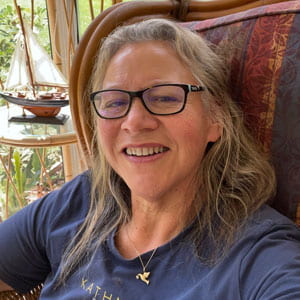Kānuka o Te Tauihu
Public Summary
|
Principal Investigator: Dr Jane Mullaney, Karl Fraser, Dr Alastair Ross, AgResearch Collaborating Organisations: Kaikaiāwaro Charitable Trust (charitable arm of Te Rūnanga o Ngāti Kuia) High-Value Nutrition funding: $55,990 Te Rūnanga o Ngāti Kuia Trust represents whānau/hapu members of Ngāti Kuia. Their land is across twelve locations, much of which contains Kānuka. They received Wild Harvest Organic Certification from BioGro for one large block, which acknowledges it is pristine native bush. Ngāti Kuia has a Kānuka Processing Facility and small commercial enterprise using certified organic-harvested Kānuka food products including tea, oil, and floral water, and has developed exports and markets in Asia for these products. Developing a Ngāti Kuia Kānuka signatureThe research focused on what makes Ngāti Kuia kānuka unique. It helped to establish provenance of Ngāti Kuia Kānuka products and will help their products to gain credibility with consumers by developing a profile of bioactives that are of importance for essential oils. Equally important to Ngāti Kuia was to learn how rongoā traditional medicine aligns with Western science by comparing harvests that were to collected according to Mātauranga Māori and those that that were not. Three main areas were assessed:
Developing Mātauranga Māori capabilityNgāti Kuia whānau are interested in land restoration, development of sustainable land use practices, organic farming, training and education programmes and economic advancement through smarter and innovative development of plant-based products from their whenua. Innovation for Ngāti Kuia is by appropriate uses of the whenua through Mātauranga. Ngāti Kuia are developing their science-mātauranga capability, starting with the use of Western technology to recover Mātauranga Māori of Kānuka. The project was developed with Dr Jane Mullaney of AgResearch, who has iwi connections to Ngāti Kuia Māori from Tāirawhiti. The project enabled Ngāti Kuia and AgResearch to co-develop knowledge systems as equal partners, through which Ngāti Kuia are developing their own science capabilities as they continue to restore and develop their whenua.
High-Value Nutrition Ko Ngā Kai Whai Painga is one of the eleven National Science Challenges. |
Research team

Dr Jane Mullaney (Ngati Porou/Ngati Raukawa)
Jane Mullaney is the Vision Mātauranga Leader for the High-Value Nutrition Ko Ngā Kai Whai Painga National Science Challenge. Jane is a senior scientist at AgResearch, Adjunct Senior Researcher for Massey University and an Associate Investigator for the Riddet Institute. Her key expertise is in the microbiome.
Jane obtained her MSc in microbiology in 2009 from Massey University. In 2010 she was the recipient of a Massey Doctoral Scholarship and Riddet CORE scholarship studying the bioactives in broccoli and the interactions with the gut microbiome. She obtained her PhD in 2013 and took up a postdoctoral position at the University of Queensland Diamantina Institute (UQDI). In 2014 she was awarded a Juvenile Diabetes Research Foundation post-doctoral fellowship at UQDI where she worked on the role of the microbiome in Type 1 diabetes.
Returning to New Zealand in 2017 she joined AgResearch to work on the HVN priority programmes for infant and digestive health and is currently an associate investigator for these programmes. Additionally, she led a Vision Mātauranga programme on developing NZ grown bananas through tissue culture, which she continues to develop. She is now a senior scientist at AgResearch and an Associate Investigator for the Riddet Institute CORE 2021–2028. Her key expertise is in the microbiome, but she is always interested in anything involving plants, people, animals, health through nutrition and is a keen finch breeder of Gouldians.

Karl Fraser
